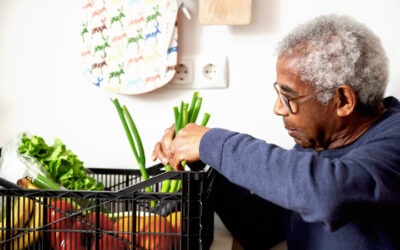A new Rockefeller Foundation report calculates the true cost of food in the U.S., including the impacts on our health, the environment, biodiversity, livelihoods, and much more
 The way Americans eat and produce food creates massive health and environmental expenditures—and that cost disproportionately burdens communities of color, according to a new report by the Rockefeller Foundation.
The way Americans eat and produce food creates massive health and environmental expenditures—and that cost disproportionately burdens communities of color, according to a new report by the Rockefeller Foundation.
In 2019, American consumers spent an estimated $1.1 trillion on food. That price tag includes the cost of producing, processing, retailing, and wholesaling the food we buy and eat. It does not include the cost of healthcare for the millions who fall ill with diet-related diseases. Nor does $1.1 trillion include the present and future costs of the food system’s contributions to water and air pollution, reduced biodiversity, or greenhouse gas emissions, which cause climate change. Take those costs into account and it becomes clear the true cost of the U.S. food system is at least three times as big—$3.2 trillion per year.
Americans pay that cost even if consumers don’t see it at check-out. Communities of color face higher rates of diet-related diseases, have reduced access to water and sanitation, and often lack livable wages as producers and workers in the food system. If we don’t change our food system, says the Report, future generations will take on these economic, health, and environmental burdens, too.
Read more and download the report
Kristen Weiss is a PhD scientist and long time vegan with a background in ecology, natural resources, and socially-conscious conservation. She has been a science communicator with Stanford’s Center for Ocean Solutions and the NSF-funded Long Term Ecological Research Network, and continues to work at the intersection between science, society, wellness, environment, and ethics across a variety of media and platforms.
Investigación: los alimentos como enfoques de la medicina en la atención médica
Los investigadores se están interesando en los programas de "alimentos como medicina" y el papel que estos programas...
La alimentación a base de plantas puede agregar años a su vida, sin importar su edad
Según un nuevo estudio de la Universidad de Bergen en Noruega, se puede vivir hasta una década más comiendo alimentos...
Transforme su salud con un plato a base de plantas: micronutrientes
Suplementos de vitaminas y minerales para una dieta basada en plantas sin procesar Sin duda habrá leído o le habrán...
Apoyando nuestro trabajo : actualmente somos una organización de voluntarios y vemos un espacio increíble y necesitamos crecer durante el próximo año. Entendemos que este momento presenta enormes desafíos para todos, por lo que, si bien buscaremos apoyo para ayudar a hacer avanzar nuestra visión, también estamos pensando de manera creativa para mantener nuestros costos bajos para generar recursos de manera eficiente y ofrecer programación a bajo costo o sin costo alguno. nuestra comunidad. Si desea apoyar nuestro trabajo, esperamos que considere hacer una donación a uno de nuestros programas de donaciones a través de nuestro socio comunitario, ¡ la Fundación Santa Bárbara !



